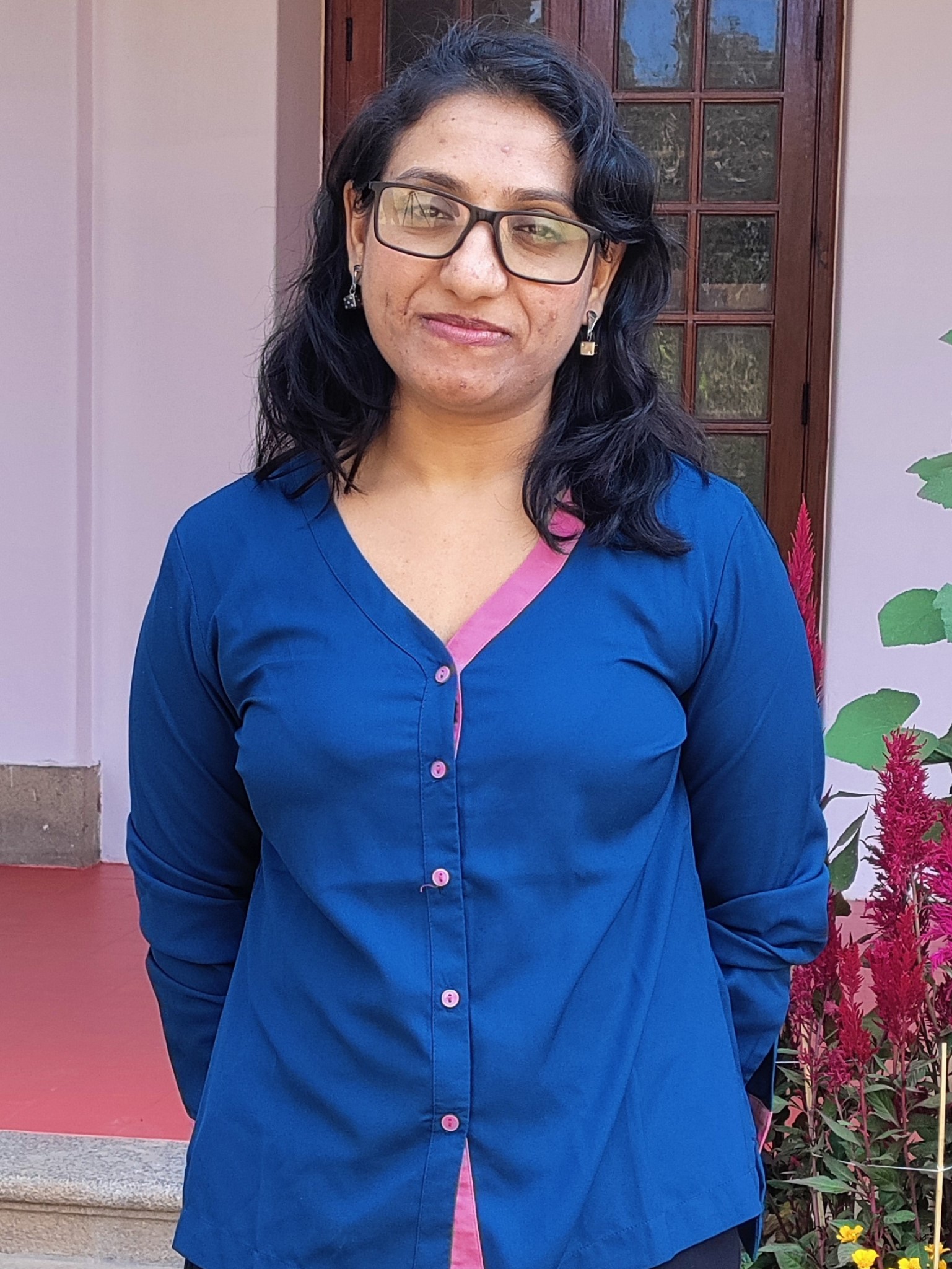Dr Chaya Ganesh is Assistant Professor at the Department of Computer Science and Automation, Indian Institute of Science (IISc). She joined the Department in December 2019.
Prior to that, she received her Ph.D. from New York University. Then, she worked as a postdoctoral fellow at Aarhus University in Denmark.
Her research interests are in cryptography and security.
In this interview, she speaks to Janaky Murthy, a Ph.D. student in the Department of Electrical Communication Engineering at IISc. The interview has been edited for clarity and brevity.

Janaky: What does freedom mean to you?
Chaya: Freedom, to me, is the liberty to pursue my dreams and aspirations, the liberty to fail, and the freedom to express and articulate my opinions and ideas without the fear of consequences or societal rejection.
I value freedom of thought and freedom of expression the most. In general, one values freedom in that dimension where one has been curtailed or feels constrained. For example, financial independence is a freedom that I take for granted sometimes; but, I know that I have many women before me to thank for that.
Janaky: What motivated you to pursue a life in science?
Chaya: I always liked math and science in school, and it always seemed like a natural choice along the path, whenever I had to make a choice. Thankfully, I did not face any resistance when I wanted to pursue this. The motivation was that I was always interested, and the curiosity stayed.
But I think what is equally important is staying motivated.
We inevitably face a lot of disappointments and failures in a career in science. We all start out with a sense of wonder and curiosity and sometimes, we lose that to a degree along the way because of all the failures. So, I think it is important to stay motivated and revive our inspiration every once in a while—go back to that one talk that inspired us and led us into this field, read that research paper or result that awed us—keep ourselves motivated and inspired.
Janaky: In the journey of exploring theoretical computer science and cryptography, there are many hurdles that you must have faced, some from within and some from outside also. As a woman, have you faced any gender bias in your life? How have you tackled it?
Chaya: I have seen a lot of gender bias in my life and career. Thankfully, I am lucky that none of those biases stayed with me. But, gender bias can be very implicit, subtle, and sometimes difficult to identify; but that does not mean that it does not affect us. It does, and more often than not, it is out of ignorance than malice. The way I deal with it really depends on the magnitude, the circumstances, and potential consequences. Sometimes, I choose to call it out, and it is worth it. It leads to a conversation and that is one step in the right direction. Sometimes, I choose to ignore it because it could be part of a larger problem that needs to be fixed at a higher level – at the societal level, at the workplace, as a country. As an individual, you cannot take everything on yourself. We really have to choose our battles. So, the way we deal with it depends on the exact incident.
Janaky: That’s a good lesson: “Choose your battles wisely!” Talking of battles, everyone has to manage their time; they have a career, family, personal life, and many other things. Did you have to choose between them at some point in time?
Chaya: This question, directed at women, annoys me a little bit. It pre-supposes that women are the people who have to balance career and family. Men have families too, but somehow, we have all accepted the fact that they don’t have to balance anything. So, I wait for the day when this question is not addressed specifically to women. But, going back to your question, today, there are hurdles, there are stereotypes. Every country suffers from gender stereotypes and biases; they just manifest differently depending on culture, etc. Of course, we have to navigate around these stereotypes.
How do I strike a balance? I really think there is no ‘one size fits all’ answer to this question. Personally, what works for me is that I surround myself with people who support my aspirations and dreams, who are my personal cheerleaders. They can be family, friends, or even mentors you have made along the way during your Ph.D. and postdoc – who root for you to succeed. Keep in touch with them, surround yourself with those people.
Every once in a while, take stock of your priorities. Re-calibrate your expectations and goals.
Striking a balance is a personal and individual act. It is easy to balance if we know what we are balancing. Life has many important components – there is work, there is caregiving at home, there is spending time with family, and balancing depends on how much I value each of these components in my life. This is something nobody else can tell us. As an individual, how much I value each of these is my own choice, and therefore, balancing it is also a highly individual and personal act.